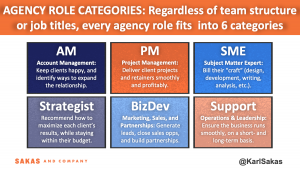— July 2, 2018

Pexels / Pixabay
Business plans are often touted as a key step in starting a new business. I’m here today to tell you that not only is that not true, it may be bad advice for many new business ventures. While formal business plans do have some use cases, most new businesses are better off skipping the formal business plan and focusing their efforts on actually starting the business. Let’s take a look at when business plans make sense, when they don’t, and what you can do instead.
Business plans take a lot of time
The first reason business plans may not make sense for your business is how much time they take to prepare. A quick online search found that the Small Business Administration suggests most business plans are around 30 to 50 pages in length. That may lead to days and days of work. Would those hours be put to better use elsewhere? Probably.
Instead of focusing your efforts on a document, you should pour those hours into your business. Yes, a business plan can act as a guide to help you with some of those decisions, but you don’t need a 40-page essay filled with charts and graphs to make that happen. You can make those decisions with much less paperwork if you skip the business plan and just get to work.
One friend repeatedly spoke to me about starting a new business for years. He was so caught up in the little details that he never started the business. A few years later, he finally just started on something and was quickly earning a solid self-employed income. He could have done it years sooner had he dropped a focus on planning perfection and just started. As I always tell consulting clients: “Don’t let perfection get in the way of progress.”
Effective business plans can fit on a sticky note
In business, you should be able to convey what your company does in a 30-second elevator ride. This elevator pitch is far more important than the business plan in many ways. No customer is going to read your business plan before signing up. But if you can convey how you provide value that they need in under a minute, you may have a clear path to a new customer.
You should have a plan for your business, but it doesn’t have to be a long business plan. In many cases, you should be able to explain the entire business on a sticky note or a notecard. Work on that first, and expand to a page or two if you need it when building a blueprint for operations. But unless you are going out and seeking external financing, you definitely don’t need more than a few pages to explain how your business works.
When you do need a formal business plan
Now that we’ve spent a few minutes bashing business plans and explaining why they are a waste of time, let’s look at the few scenarios when a long business plan is needed. These generally revolve around raising outside funding as you don’t need a business plan for internal use.
- Lending – If you plan to go to the bank for a loan, you will need a business plan. In this case, you will need something formal, well written, and loaded with facts and figures to prove to the lender that your business is a worthwhile risk. The proforma financials are the most important piece of the puzzle for the underwriter who will use those figures to approve or deny the loan.
- Fundraising – If you plan to bring in funds from outside investors, they may want to see a business plan and/or pitch deck. As you move up the chain from less formal angel and family investments up to formal investments from venture capital, you may need to up your business plans as well.
The important part of this to understand is that business plans are more important for external use when raising funds for your company. Outside of that, you don’t need to build up a giant document explaining how your business works.
Keep it simple
On a recent business consulting call, a new client explained that she had spent hours working on a business plan but sometimes struggled with time management. I advised she stop wasting so much time on a document no one else is going to read and focus more on her customers. Within a couple hours of hanging up, she had a $ 250 payment show up in her account. That is the power of putting your energy in the right places in your business.
Business plans are useful in some business situations, but they should not be a top priority or a massive undertaking. Keep your business plan simple and focus more on running the business and serving customers. With a focus on the customer experience, you’ll put yourself on track for the best possible business success.
Business & Finance Articles on Business 2 Community
(77)
Report Post





